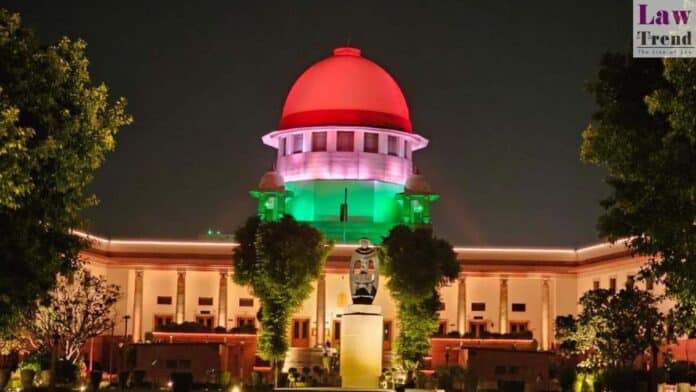The Supreme Court on Thursday questioned the Enforcement Directorate (ED) over the “hurry” in filing an application before a trial court seeking issuance of non-bailable warrant (NBW) against an accused in a money laundering case linked to the alleged Rs 2,000 crore liquor scam in Chhattisgarh.
A bench headed by Justice Sanjay Kishan Kaul stayed the NBW, noting that the apex court had in its July 18 order passed in the matter said the ED “must stay their hands in all manner”.
The bench, also comprising Justices Sudhanshu Dhulia and Manoj Misra, was hearing an application filed by Anwar Dhebar seeking a stay on the operation of the trial court’s October 13 order for issuance of NBW against him. Dhebar also sought the court’s direction that no coercive steps be taken against him in the ED case.
Senior advocate Mukul Rohatgi, appearing for Dhebar, told the top court that the Chhattisgarh High Court had on October 6 dismissed his bail application after having granted him interim bail in July.
He said the ED had made an application dated October 9 before the trial court in Raipur seeking issuance of NBW against Dhebar.
“Once we say you don’t have to take any coercive steps, is it (NBW) not in overreach of our order? That is the point. Right or wrong, we are seized of it,” the bench told the counsel representing the ED.
It said the high court’s order rejecting the bail petition has resulted in the issuance of an NBW.
The bench sought ED’s response on the application and posted the matter for hearing after six weeks.
“In the meantime, the petitioner would continue on interim bail and the order issuing non-bailable warrant is stayed,” the top court said.
“Why such a hurry, I don’t understand,” Justice Kaul told the ED’s counsel.
Dhebar, in his petition filed through advocate Malak Manish Bhatt, said the ED moved an application before the special judge seeking NBW against him “in absolute violation” of the apex court’s July 18 order.
“Such application itself is in violation of the order dated July 18, 2023 passed by this court as the hands of the respondent agency (ED) were ‘stayed in all manner’ by this court and thus the respondent agency ought not have filed the aforesaid application,” it said.
The application claimed despite the entire investigation and proceedings in relation to the Enforcement Case Information Report (ECIR) being “completely illegal and without jurisdiction”, and the order passed by the apex court, the applicant will be taken into custody in light of the order issuing NBW against him.
While hearing the matter on May 16, the top court had told the ED not to create an “atmosphere of fear”, after the Chhattisgarh government claimed the probe agency was “running amok” and was trying to implicate Chief Minister Bhupesh Baghel in a money laundering case linked to the alleged liquor scam in the state.
Also read
The Chhattisgarh government had earlier alleged in the apex court that several state excise department officials have complained about ED officials threatening them and their family members with arrest.
The ED has alleged a massive scam in liquor trade in Chhattisgarh perpetrated by a syndicate comprising high-level state government officials, private persons and political executives that generated tainted money more than Rs 2,000 crore in 2019-22.
The money laundering case stems from a 2022 income tax department charge sheet filed in a court in Delhi.
The federal agency had alleged that bribes were collected from distillers in the state on a per liquor case basis procured from the CSMCL (state body for purchase and sale of liquor) and country liquor was being sold off-the-books.
According to the ED, bribes were taken from distillers to allow them to form a cartel and have a fixed market share.




